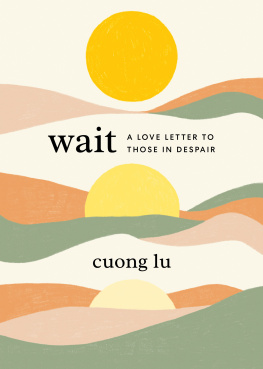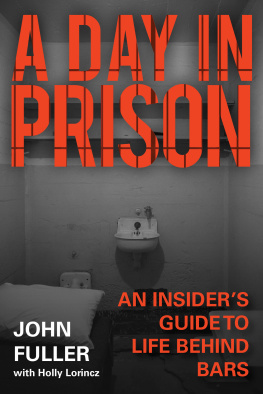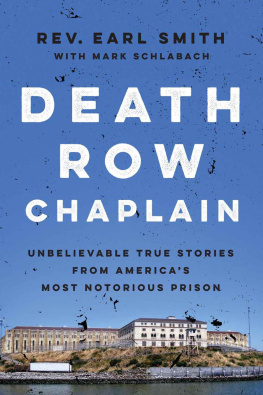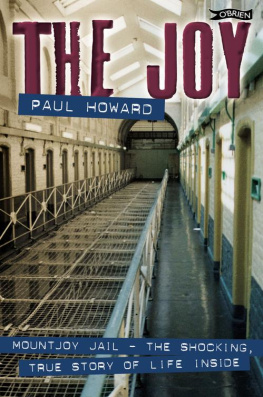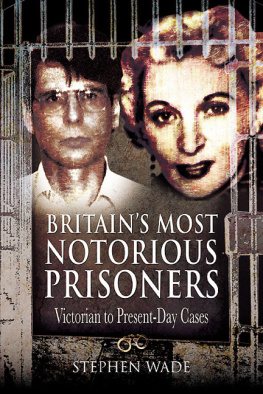Table of Contents
Guide
About the Author
Cuong Lu, a Buddhist teacher, scholar, and writer, was born in Nha Trang, Vietnam, in 1968 and emigrated to the Netherlands with his family in 1980. He majored in East Asian studies at the University of Leiden, and in 1993 was ordained a monk at Plum Village in France under the guidance of Thich Nhat Hanh. In 2000, he was recognized as a teacher in the Lieu Quan line of the Linji School of Zen Buddhism. During the Lamp Transmission Ceremony, Thich Nhat Hanh offered Cuong this insight poem:
Functioning at the True Source of the Dharma
Strengthening your roots
The strong, saddled horse is already yours
Be at peace on the journey of 10,000 miles
In 2009, Cuong left Plum Village and returned to lay life in the Netherlands, where in 2015 he received a masters degree in Buddhist Spiritual Care at Vrije (Free) University in Amsterdam.
Cuong is the founder of Mind Only School, in Gouda, where he teaches Buddhist philosophy and psychology, specializing in Yogachara Buddhism combined with the Madhyamaka (Middle Way) School of Nagarjuna. Cuong leads retreats and gives Dharma talks in Europe, the US, and Asia, and offers presentations to large organizations. He is the author of four books in Vietnamese and one in Dutch. This is his first book in English.
What do you think is the worst part of being in jail? a prisoner named Derek asked me, and before I could respond, he said, You dont have the key to your own cell. A guard locks you in, walks away, and you have to wait till he comes back. I understood. Confined by four walls, locked in a cell, you feel powerless.
The Buddha taught that were all imprisoned by body and mind. Because we dont understand our true nature, we feel unhappy and unfree. For a prisoner, its difficult to see that youre incarcerated not only in your cell, buteven more soby not realizing that freedom is, first of all, an attitude. The Dharma, the Buddhas teaching of awakening, offers us a key to free ourselves, whether were locked in prison or in the confines of our narrow views.
For six years, I had the opportunity to bring the Dharma into prisons, and what I witnessed and experienced was a wake-up call for me. I learned that even in the darkest places, people could live happily and free. Thanks to the Dharma, I saw prisoners find freedom while still incarcerated and experience joy for the first time in their lives. I met the Buddha in jail. I discovered that each prisoner is a Buddha, capable of awakening. In Vietnamese we say, Once you drop the butchers knife, you become a Buddha. Theres no difference between a butcher, a prisoner, and a Buddha.
Each morning when I went to work as a prison chaplain, I had to pass through thirteen electric doors just to reach my office. At each door, I pushed a button and waited. Often it took a few minutes for a guard to see me on the closed-circuit TV and open the door; and so at each door, I had a chance to practice patience and stand at the mercy of others, like the prisoners. Most of us take for granted that we can open and close our own doors. They may be unlocked, but even if theyre locked, we have the key. Prisoners dont have the keys to open the doors to their cells. Theyre dependent on the guards.
For many of the prisoners I met, the doors of their lives were closed, some starting the day they were born. Listening to their stories, I saw how choices they made got them into trouble. Most knew little happiness. One man was abandoned by his mother, a prostitute, and his father, a drug addict, and when he was thirteen, he began breaking into cars at night to sleep. Later he became a professional car thief.
Ive been a Dharma teacher for twenty years, and Ive observed that prisoners, war veterans, refugees, and others who have been through extreme difficulties are often able to understand the Dharma more quickly than those whose lives have been easier. Sometimes I witnessed a deep understanding of the Dharma at our first meeting. In just twenty minutes, they tuned in to a profound happiness, a joy in body and mind theyd never felt before. These are people who had touched the bottom of their suffering. Once they could see the suffering they were clinging to, thanks to remaining still in the presence of trauma, many were able to release the hold their suffering had on them and experience a profound happiness.
Once you taste that depth, you will never forget it. It changes you. One prisoner told me, Ive never been as happy as this. If I had discovered the Dharma earlier, I wouldnt be in prison now. I had no idea happiness was this close. Ive been looking for relief my whole life, and the more I looked, the more I suffered. I made many mistakesrunning after suffering thinking it was happiness.
One fellow chaplain told me, We dont have Buddhists in this prison. People in the Netherlands are Christian. I replied, Well, now theres one, and they began to call me the Buddhist. What that chaplain conveyed was that the prisoners, guards, and others in the system didnt know anything about Buddhism. So, slowly, I taught a few prisoners to quiet their minds through meditation and offered basic teachings on the consequences of thoughts and actions and Buddhist precepts, and they began to look forward to our meetings. When I was away, even for a short time, someone would ask, Wheres the Buddha?
The first time I heard this, I was taken aback. The historical Buddha is said to have been a perfectly enlightened being, and I surely am not. Then I began to see that everyone, every prisoner, every warden, and every chaplain is the Buddha. The potential to wake up to the way things are dwells deeply in each of us.
Looking without prejudice, seeing things as they are, is an important Buddhist practice. One day, a prisoner came to me and said, Mr. Buddhist, I want to join your group. I asked, Are you a Buddhist? No, sir, he replied. Im not. But can I join your meditation group?
Of course you can, I told him. But may I ask why you want to practice meditation?
Because I see the way you look at us. I see that in your eyes were not just prisoners. You dont discriminate. Its wonderful to be seen that way. It gives me confidence in myself, and I want to learn from you. He paused, then continued, Not only the way you look, but also the way you walk. You radiate peace when you walk in the prison. Nobody else walks that way. I see both prisoners and staff holding a lot of sorrow and anxiety as they walk. I can see the worries in their minds. I have lots of worries too, and I want to learn how to walk, how to be without worrying. Then he added another reason. Ive been watching the guys who meditate with you. Theyre more peaceful than the rest of us. I want to learn that, too.
His eloquence touched me. Learning to be peaceful is a practice. I asked his name, and he said, Andrew. Andrew, from now on you are my student. Im going to teach you to be peaceful, like the Buddha. I could see he was happy for my support, but he didnt quite believe me. He was agitated, so I asked him to sit with me quietly. I cant, he said. I have ADHD. I encouraged him to try, and at the end of the sitting, despite his fidgeting, I said, You did very well. I said it from my heart, and he was surprised. He hadnt sat quietly, but he did sit. He stood up one time, but he didnt walk away. Andrew was a fighter, and I respected his strength. When I expressed my respect, he glowed with satisfaction.
Colleagues thought prisoners came to me for free time, a chance to get outside their cells. I dont think thats the case. Sitting quietly for a half hour is never easy, and certainly not for these men. It was a big effort for them. They didnt come for fun, but to learn something practical. Many would have given up, but I recognized their effort and encouraged them. The change in each was clear to see. They became quieter and more peaceful. I was happy that they trusted me. Trust in a teacher on a path of self-knowing is very important.
Next page

